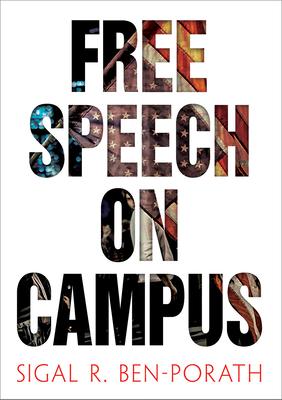From the University of California, Berkeley, to Middlebury College, institutions of higher learning increasingly find themselves on the front lines of cultural and political battles over free speech. Repeatedly, students, faculty, administrators, and politically polarizing invited guests square off against one another, assuming contrary positions on the limits of thought and expression, respect for differences, the boundaries of toleration, and protection from harm.
In Free Speech on Campus, political philosopher Sigal Ben-Porath examines the current state of the arguments, using real-world examples to explore the contexts in which conflicts erupt, as well as to assess the place of identity politics and concern with safety and dignity within them. She offers a useful framework for thinking about free-speech controversies both inside and outside the college classroom, shifting the focus away from disputes about legality and harm and toward democracy and inclusion. Ben-Porath provides readers with strategies to de-escalate tensions and negotiate highly charged debates surrounding trigger warnings, safe spaces, and speech that verges on hate. Everyone with a stake in campus controversies--professors, students, administrators, and informed members of the wider public--will find something valuable in Ben-Porath's illuminating discussion of these crucially important issues.
From the University of California, Berkeley, to Middlebury College, institutions of higher learning increasingly find themselves on the front lines of cultural and political battles over free speech. Repeatedly, students, faculty, administrators, and politically polarizing invited guests square off against one another, assuming contrary positions on the limits of thought and expression, respect for differences, the boundaries of toleration, and protection from harm.
In Free Speech on Campus, political philosopher Sigal Ben-Porath examines the current state of the arguments, using real-world examples to explore the contexts in which conflicts erupt, as well as to assess the place of identity politics and concern with safety and dignity within them. She offers a useful framework for thinking about free-speech controversies both inside and outside the college classroom, shifting the focus away from disputes about legality and harm and toward democracy and inclusion. Ben-Porath provides readers with strategies to de-escalate tensions and negotiate highly charged debates surrounding trigger warnings, safe spaces, and speech that verges on hate. Everyone with a stake in campus controversies--professors, students, administrators, and informed members of the wider public--will find something valuable in Ben-Porath's illuminating discussion of these crucially important issues.Hardcover
$19.95